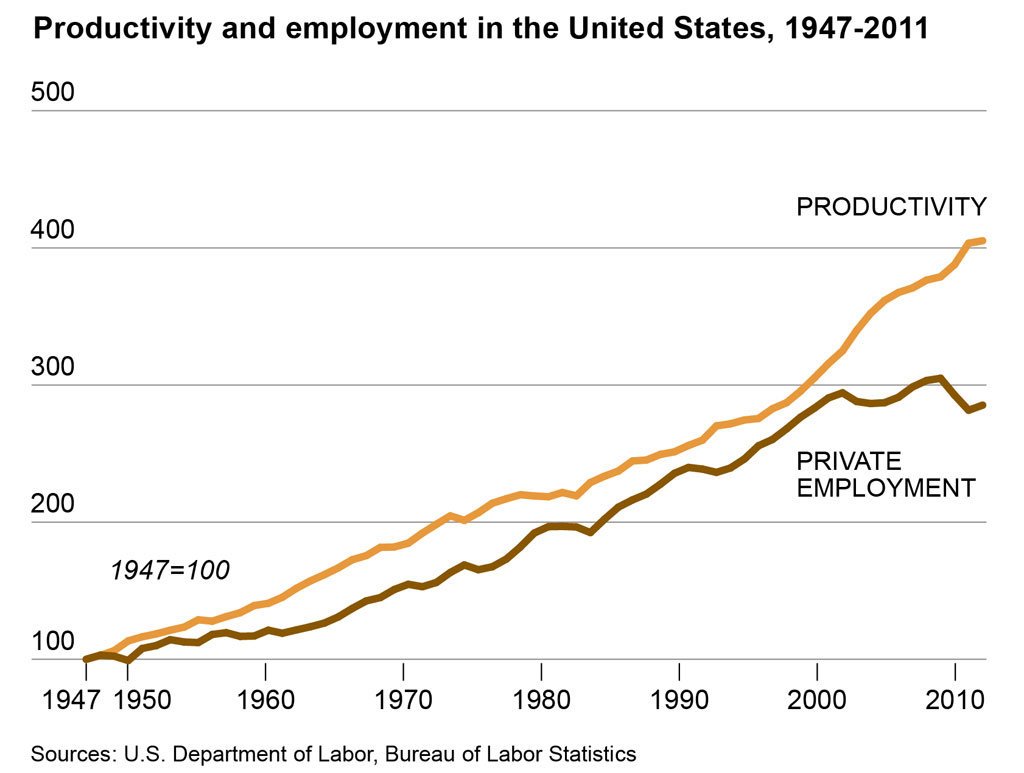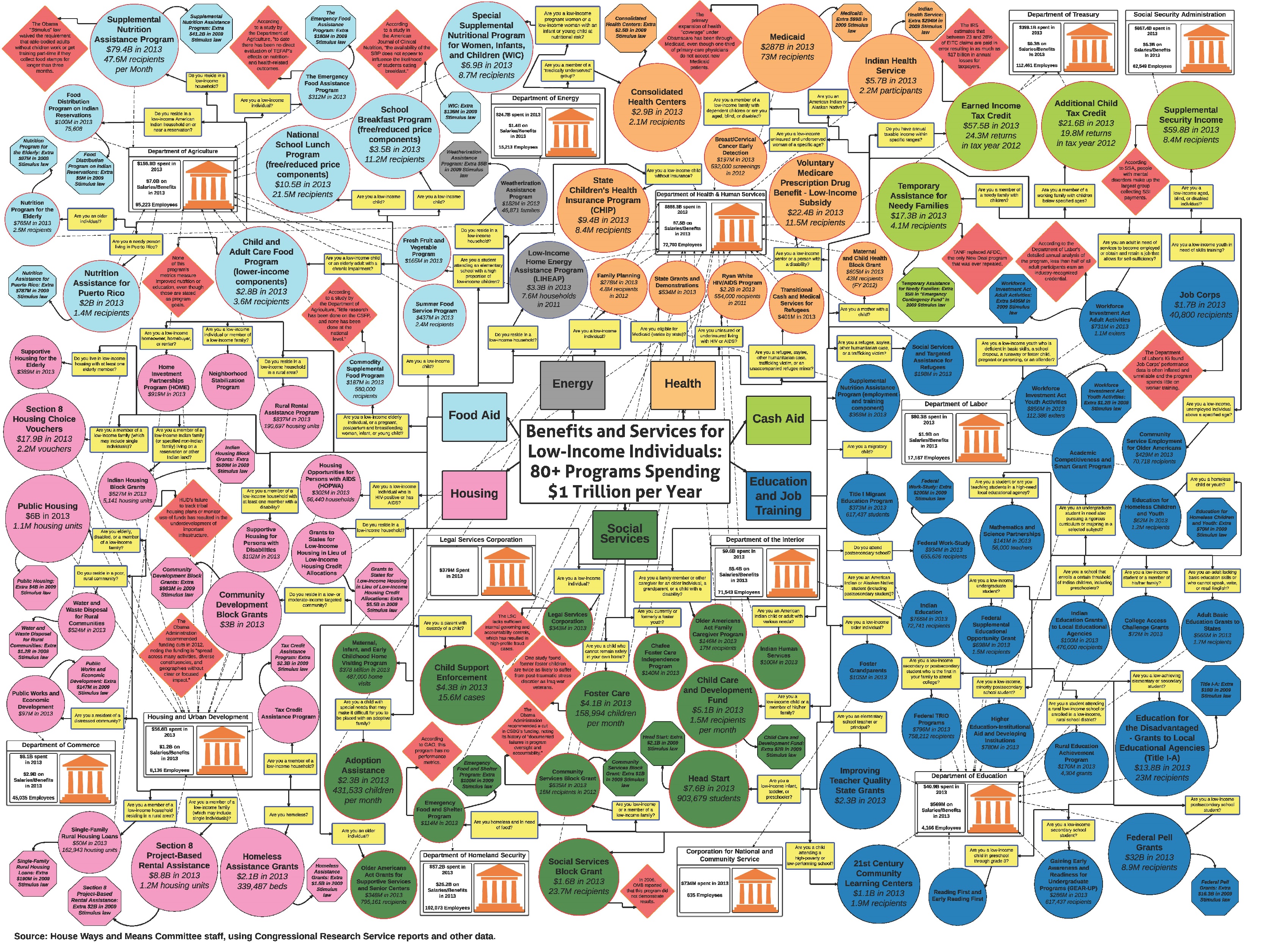“We are approaching a time when machines will be able to outperform humans at almost any task…society needs to confront this question before it is upon us: if machines are capable of doing almost any work humans can do, what will humans do?,” asked Moshe Vardi, expert and professor of computer science at Rice University. The question is legitimate, and the political leaders of our future will have to answer.
Universal basic income, or UBI, may appear to be a leftist utopian ideal, but its fundamental ideology is rooted in free-market capitalism, and therefore, when forced to propose a solution for extreme unemployment, it will likely become part of the political right’s policy platform.
UBI initiatives, and closely related policies, have already enjoyed some support on the right. Milton Friedman, American economist and champion of a free market economic system with minimal government intervention, supported a ‘negative income tax.’ The tax would replace the existing social welfare bureaucracy, derided by politicians and thinkers on the right, with a cash donation to every citizen. Friedman’s system distinguished itself from other flat-gift systems by scaling the money awarded back proportionally as a citizen earned money. If a family’s allowances came out to $15,000, the subsidy rate was 50%, and the family earned $8,000, the family would receive $3,500. $7,000 of allowances would be unused and therefore qualifies for a refund of $2,000, half that amount. Friedman said in a 1968 interview with William Buckley that the subsidy rates would be critical to prevent disincentivizing people from working.
Historic Support on the Right
Friedrich Hayek, Austrian-British economist and philosopher best known for his defense of classical liberalism, also supported the idea of a minimum income. He wrote in 1979 that “the assurance of a certain minimum income for everyone, or a sort of floor below which nobody need fall even when he is unable to provide for himself, appears not only to be a wholly legitimate protection against a risk common to all, but a necessary part of the Great Society.” The motivation for Hayek in supporting this proto-UBI system is not one of egalitarianism, according to UC San Diego philosophy professor and libertarian Matt Zwolinski, but rather for protection from coercion. Because the autonomous self is the absolute greatest goal for a libertarian, an individual’s actions are key to ensuring that autonomy. The coercive power of an employer to force the worker to support policies they do not like or undergo other things that they disagree with, mean that an individual’s need for financial security will always be a concern for libertarian goals of autonomy. Since freedom, expressed as personal liberty, is the ultimate goal of libertarianism, libertarians “will want some mechanism that catches those who fall through the cracks left by imperfect market competition” says Zwolinski.
“A basic income gives people an option — to exit the labor market, to relocate to a more competitive market, to invest in training, to take an entrepreneurial risk, and so on. And the existence of that option allows them to escape subjection to the will of others. It enables them to say “no” to proposals that only extreme desperation would ever drive them to accept. It allows them to govern their lives according to their own plans, their own goals, and their own desires. It enables them to be free.”
This rhetoric of “be[ing] free” is the exact type of freedom that, according to libertarians, allows individuals under a basic income to escape the societal forces that reduce their autonomy. Taxes, overreaching government control, and even societal norms are all constraints on individual liberty. In the workplace and any part of society that is affected by microeconomic coercion, a UBI would allow people to avoid control and unjustified authority. When UBI is considered as a liberating policy, rather than a social safety net, its appeal to the libertarian right is more clear.
Even Donald Rumsfeld, a conservative rather than a libertarian, directed a UBI experiment for the Nixon administration, with Dick Cheney serving as a special assistant. The UBI used for the study was modeled after Milton Friedman’s negative income tax. It guaranteed a basic annual income of $1,600, with every dollar earned above $720 the subsidy being reduced by $0.50. The experiment was aimed at determining UBI’s impact on recipients’ incentive to work. It found that of those given a basic income, the men worked one hour less per week and women worked five hours less per week.
In 1969 Nixon proposed the Family Assistance Plan, which gave money to families with children. A family of four without any other income would have received $1,600 annually. The program would, however, reduce benefits according to their income from work and any other benefits received from other government programs. In this sense, the plan was not entirely “universal” like how most UBIs are thought of, but still showed a conservative propensity for the simplicity of a UBI. The program would replace the existing Aid to Families with Dependent Children program, which was seen by conservatives as bloated and bureaucratic. The 1972 Family Assistance Plan passed the House before being voted down in the Senate, both of which had a Democratic majority. “Perhaps the leading objection to the universal child allowance is its cost,” according to Robert J. Lampman, Professor of Economics at the University of Wisconsin in a 1969 Institute for Research on Poverty paper. The program also received criticism by some for its inability to completely solve the issue of childhood poverty, but such concerns were in tension with those who did not want to expand government cost. Nixon was persuaded to abandon the idea by sociologist Karl Polanyi who pointed to the English 19th century “speenhamland system” social welfare program which was reported by the English government to induce laziness in its recipients. Although the Senate blocked it, the 1972 push for a bill on the path to UBI shows its potential for appeal on the right.
“A massively unemployed underclass”
Conservatives will, however, generally avoid expanding government social programs if they can avoid it. However, the future of automation and unemployment will lead to massive amounts of political unrest, forcing each party to offer its own solution. Conservatives will not be able to let the free market solve like they have advocated for in the past, when the free market deprives their voters of jobs.
In a rigorous 2013 study, researchers Carl Benedikt Frey and Michael Osborne examined 702 occupations and found that 47% of Americans jobs are at high risk of being automated. For example, the study says that workers in transportation and office support could in the future be replaced by “computer capital” and workers in sales and services are also susceptible to computerization. As self-driving cars become a closer and closer reality, and advanced computer programs enhance their self-diagnostic abilities, this is hardly a surprise.

Moshe Vardi, professor of computer science at Rice University, told the American Association for the Advancement of Science (AAAS) that “we are approaching a time when machines will be able to outperform humans at almost any task…I believe that society needs to confront this question before it is upon us: if machines are capable of doing almost any work humans can do, what will humans do?” McKinsey & Company, considered by The New York Times to be the most prestigious management consulting firm in the world, said that “as many as 45 percent of the activities individuals are paid to perform can be automated by adapting currently demonstrated technologies. In the United States, these activities represent about $2 trillion in annual wages.” They clarified that these losses affect not only low-skilled or low-paid workers, but also higher-paid occupations like CEOs and physicians.
Don Philip, retired Ph.D. lecturer, said to Pew Research Center that “if this is improperly managed we will have a massively unemployed underclass and huge social unrest.” Polina Kolozaridi, a researcher at the Higher School of Economics, Moscow, wrote that unemployment caused by automation “will lead to a decrease in people’s income unless governments elaborate some way of dealing with it. This might be a reason for big social changes — not always a revolution, but — in some places — a revolution as well.” Democrats are already shifting their political platform to appeal to populist working-class concerns. Republicans, and others on the right, will do the same in the future when they are forced to confront the future problem of rising unemployment brought on by automation.
Incentives for the Right
The political right will have a plethora of options to choose from to deal with the emerging social problem of mass unemployment, and UBI’s elimination of government bureaucracy will be a major reason for the small-government coalition’s support of it. According to the libertarian CATO Institute policy think tank, “UBI would completely eliminate the current welfare state — a sprawling and bureaucratic morass — and replace it with a single redistributive program that would provide a monthly payment to everyone.” This simplicity and cutting of red tape is attractive to small-government advocates. Food stamps, Housing assistance, Temporary Assistance for Needy Families, or “welfare,” could all be eliminated and replaced by a small administration sending out uniformly distributed checks on a regular basis. In a large government bureaucracy, “distinguishing between the deserving and undeserving is difficult business, and requires a variety of invasive, demoralizing, and degrading inspections into the intimate details of applicants’ lives,” the CATO institute says. The present concern that individuals are ‘gaming the system,’ and bureaucracy’s ‘invasiveness’, would be solved by UBI’s simplicity and uniform enforcement. Although progressives may prefer programs that address marginalized populations — the poor, people of color, etc — the ability to send out a uniform check with the same amount paid to everyone, regardless of social location, will be in conservatives’ favor. Progressives will in the future no doubt suggest programs to combat automation that expand the government bureaucracy to support unemployed workers, but such programs will only be met with distaste by conservatives. A consistent program that gives the same payment to everyone will be far more preferable to conservatives.

In addition to eliminating government bloat, UBI will become attractive on the right in large part for its support of basic free-market policies. When libertarians approach a given policy problem, they take a given policy’s incorporation of larger free market principles into account. Avik Roy, libertarian journalist and policy advisor, in his healthcare proposal, noted that “the plan has its roots in real-world examples of market-oriented, cost-effective health reform” for a reason. The Senate Republicans recently approved budget utilizes a calculation called “dynamic scoring,” which assumes that reduced taxes will generate substantial economic growth. The free market has always been the crown jewel of the political right. UBI directly supports those free-market instincts by placing the distribution of resources in the hands of the supply-and-demand market rather than a centrally administrated government program. People will use their UBI money to purchase goods and services on the free market, through private competing companies. This supports the supply-and-demand model of the distribution of goods through buying and selling in the free market. The distribution of the UBI will be uniform and simple, but the application of those distributed funds by individuals will be entirely through the free market, perfectly embodying the ideology of the political right.
It may seem counter-intuitive for the right to support such an expensive program, but recent shifts in the Republican party may change that. Senate Republicans approved a budget that will increase the deficit by $1.5 trillion over 10 years. Donald Trump’s wall will cost $21.6 billion according to an internal U.S. Department of Homeland Security report. The Republicans are not exactly the deficit and debt-hawks that they used to be. Additionally, Republicans can portray UBI as paying for itself. The left-leaning Roosevelt Institute think tank reported that a UBI paid for by increasing the debt would expand the economy by 12.56% over the baseline after eight years. This would amount to an increase of about $2.5 trillion by 2025.
Another solution? Universal basic services
UBI is not the only solution that has been proposed to solve mass poverty, however. Universal basic services, or UBS, offers a more bureaucratic approach. In a UBS system, basic needs such as housing, education, healthcare, and food are all provided directly by the government. Proponents also argue that this would alleviate the societal harms of automation since unemployment would not necessitate a life of resource poverty.
In future political alignments, progressives would be more likely to support this type of solution. For one, It would not entail the elimination of government programs that the left has sought to expand and protect for decades. Additionally, the left will be more receptive to a program that administers aid through the government rather than through the free market. This is why the left, in their ideal world, would rather support a single-payer healthcare system rather than a fully subsidized private insurance model. UBS provides the central control and planning that liberals want when implementing programs to alleviate societal harms.
The future will inevitably lead to mass unemployment as automation replaces more and more of the work we humans currently do. Conservatives and liberals will each provide a solution, or risk political catastrophe. Only time can tell, but the basic principles of UBI align well in-line with modern conservative economic thought.
Featured Image Source: Creative Commons, photo by Stefan Bohrer






Be First to Comment